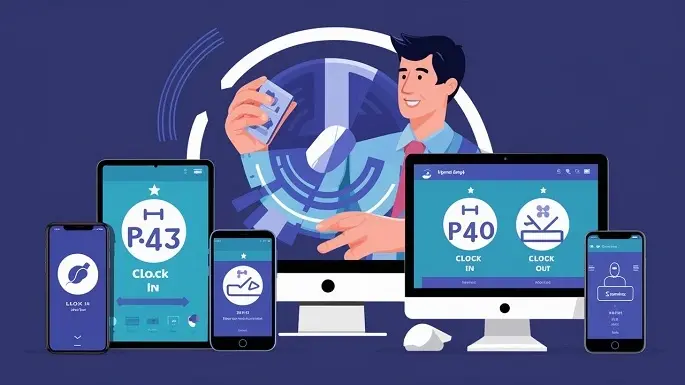Lack of punctuality or no call no show is another problem that managers face and can be a real thorn in any organization. However, to some extent it is possible to foresee and prevent such cases, responding to them accordingly, if necessary, having clear policies and procedures in this regard.
Here are some best practices on how to handle no call no showcases:
1. Have a Clear Policy
The first one is to ensure that a no-call no-show policy is formulated and readily available for all employees. They should be able to state in the policy that the employee is expected to call in when the individual will be unable to report to work or if the employee will be late for work and the penalty for not following this policy including punishment and possible termination. Make sure the policy:
- States how many days a member can absent himself or herself from the meeting without prior notification (no call no show)
- Notification of states’ excused absences policy (to whom the student should report their absence and by when).
- Explains how an organization should go about implementing progressive discipline measures (warning, written reprimand, suspension, dismissal).
‘Giving employees a heads up’ is important because it informs employees of what is expected of them, and in the case of policy violations, what possible repercussions they are likely to face when they do not adhere to the set procedures of calling in.
2. Conduct an Investigation
When an employee does a no-call no-show, do not assume that the reason is for skipping work or being lazy. However, just try to locate them and call through a phone call, email, and their emergency contacts. It might be quite plausible that there is a valid reason – he or she couldn’t come because of the lack of means of transport, a health condition, a family problem, etc.
Make sure to log all efforts made to contact the employee. If you are unable to contact them in the next 24 hours, a written warning should be sent to the Absent employee, informing him/her that he/she has to contact the employer immediately upon his/her return regarding his/her absence or else further disciplinary action shall be taken.
3. Meet with the Employee
Schedule a meeting right away if the employee resumes work without giving any reason for absence. Offer them a chance to state their side on the circumstances and the cause of not calling in as per the policy. The best thing they can do is to withhold decisions until they have a chance to deal with what happened.
During the meeting, clarify the no-call policy, emphasize when and how to give proper notice, and then administer the proper verbal or written warning based on the employee’s past performance. For the first offense, one may simply tell the offender to never again do such a thing and that they must inform the manager should things get that far again. It may also be necessary to add any documentation to the personnel file depending on the specifics of the particular case.
4. Assess Frequency and History
The decision about the suitable punitive measures for no call no shows is not well defined and it depends on the particularities of each case. Whereas, mere first-time offenders may simply be warned where there is strong evidence that an employee has deliberately violated company policy time and again this would call for more severe action. When assessing appropriate response, look at:
- This is an important aspect since one needs to determine if it is the first time such an offense has been committed or if it is a second violation.
- Has employee’s attendance and reliability been good, fair, or poor over time?
- In the efforts made to reach for the employee, were all the procedures followed correctly?
- If the employee returned what did he/she have as a reasonable basis for his/her action?
Data obtained from the history and frequency of individual offenses is useful for deciding if and when written warnings, suspensions or terminations are warranted. Administer discipline as per agreed upon policy since failure can lead to complaints of bias by the employees.
5. Review Underlying Causes
They may not come to work often due to various reasons, and this may be a result of personal problems that the employee is facing. It is, however, acceptable that policy breaches require correction; attempt, therefore, to approach the subject in an investigative manner to find out whether or not there are circumstances that cause truancy.
Acknowledge their situation and allow them to express themselves if they are having difficulties in managing childcare, illness, transportation, mental problems, etc. Inform them about the EAP program and other useful services they could receive help from. Unfortunately, a lack of attendance can be a common problem in these settings and a more individualized approach can often assist with enhancing attendance.
6. Consult HR
It is necessary to engage HR in synch with the disciplinary measures implemented in no-call no-show scenarios particularly when the outcome includes suspension, final written warning, or termination. Have HR go through records and check whether the policy has been fairly implemented across employees.
In Union environments, it should be made sure that the provisions of the call policy are not infringed whilst ensuring that proper representation for the employees is provided by the collective bargaining agreements. As the results show, it is crucial to adhere to legal formalities especially when dealing with potential termination scenarios.
7. Revisit and Refine Policy
If no call no shows remain one of the major challenges that an organization experiences, it is important to sit down and consider whether set policies on expectations are achievable or require further improvement. The following are usual explanations given when explaining the failure of the notification procedure and incentives that may assist in preventing the problem in advance.
For such positions where there is a need to hire contingent staff when the regular staff is away, highlight how much the position is needed to give sufficient notice. It is also possible to put in place carrots for attendance rather than just the sticks to ensure proper compliance. It can also be an effective way to provide input to improve the existing policy and gain more support.
Managers are always on their toes, and no-call no-shows make them even more frustrated. But by concentrating on increasing awareness of the obligations that should be performed before issues arise, being compassionate but enforcing rules and standard operating procedures next, most situations can be dealt with fairly well. Having a consistent approach while enforcing policies in general while still being able to deal with the employees compassionately can be of great help.



